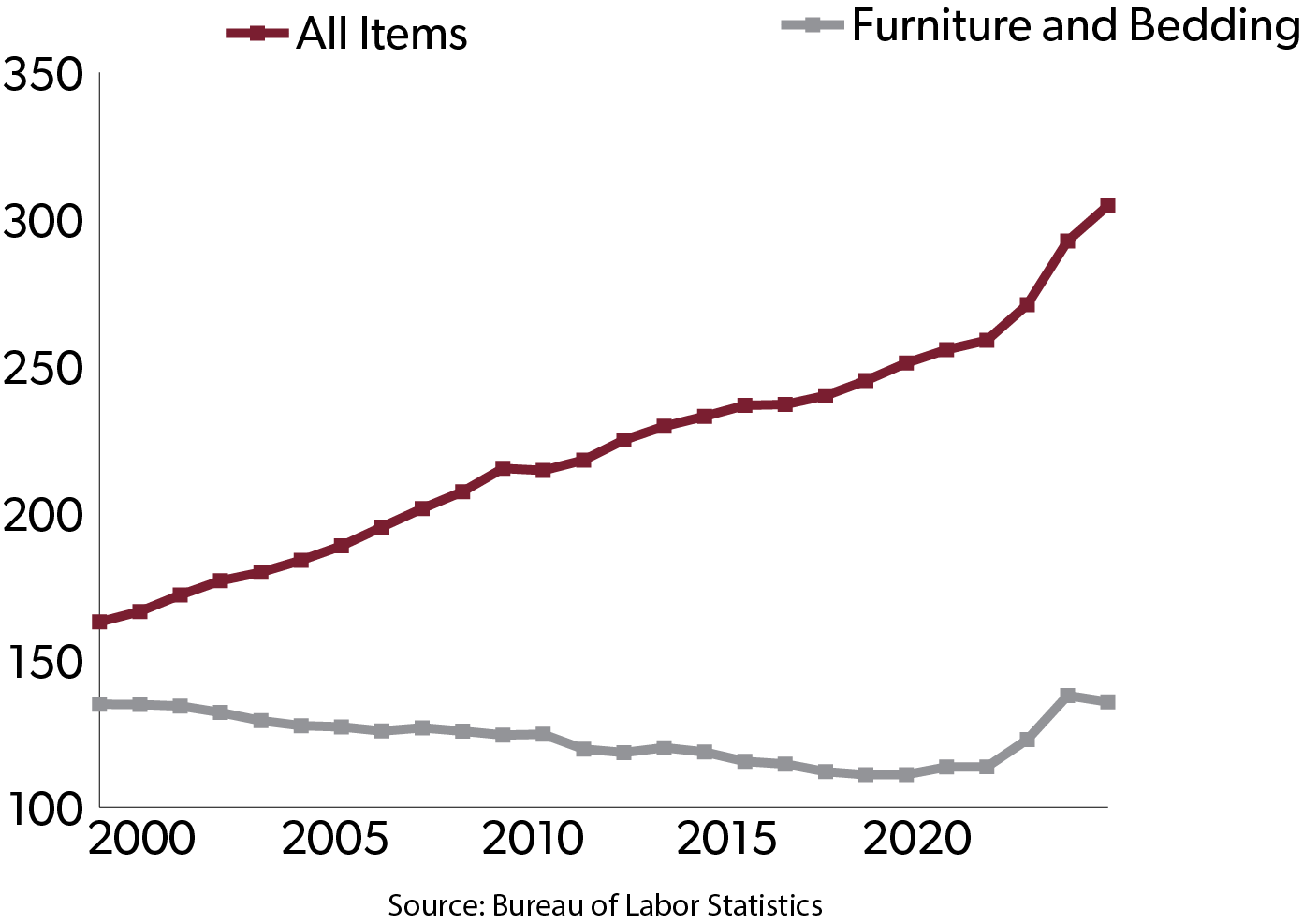
At a time when Americans remain concerned about the high cost of living, President Joe Biden and former president Donald Trump continue to embrace trade policies that inflate prices.
In a recent interview, former President Donald Trump said this about U.S.-China trade:
And you know what they do, they dump and dump and dump, everybody goes out of business, then they buy those businesses very cheap, and then they raise the prices to higher than they ever were.
He proceeded to use the North Carolina furniture industry as an example. But his furniture example actually shows how the benefits of trade outweigh the costs.
For the vast majority of Americans, furniture imports provided a windfall. Inflation-adjusted furniture prices fell by 24 percent from 1998 to 2018, even as overall U.S. prices were increasing by 54 percent.
Figure 1: Consumer Price Index, 1982-84=100

The progress toward lower furniture prices stalled after Trump imposed a 25 percent tax on Chinese-made furniture. Prices then surged during the pandemic, but inflation-adjusted prices remain lower as of September than they were in 1998.
Affordable furniture imports do not just benefit consumers. Americans use the dollars saved from the availability of lower-priced furniture to spend or invest elsewhere in the economy, supporting jobs in other industries. And every dollar that Chinese furniture manufacturers earn by exporting to U.S. customers is available to spend on U.S.-made goods or to invest in our economy.
The same logic applies to President Joe Biden’s recent tax hike on affordable de minimis clothing imports from China, which may provide some benefit to the 0.03 percent of Americans who work in apparel manufacturing, but only at the expense of higher prices for low-income households.
From 1998 to 2018, the United States lost 805,560 jobs in the apparel and furniture manufacturing industries. People often refer to this as the “China Shock.” But at the same time, the country has added higher-paying jobs. For instance, we gained 924,130 new jobs for registered nurses. These jobs pay 76 percent more on average than apparel and furniture manufacturing jobs. Some of those jobs were created by the dollars unlocked as a result of affordable imports. While the job losses resulting from affordable clothing and furniture imports are apparent, many people overlook the new jobs such imports enable our economy to create.
Instead of trying to bring back low-wage jobs by imposing protectionist import taxes, as President Biden and former President Trump have done, the government should instead reduce barriers to affordable furniture and clothing. This would benefit the 99.86 percent of Americans who do not work in those industries and who have seen their buying power reduced by inflation, and it would unleash the economic growth needed to create new, higher-paying jobs for American workers.

